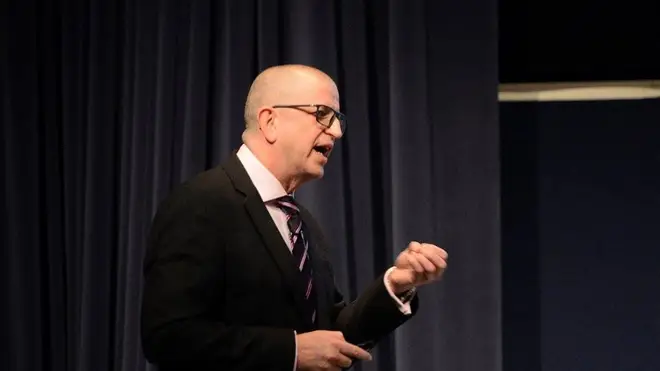
Iain Dale 7pm - 10pm
10 June 2020, 06:41

The Government has faced criticism for being "far too slow" to communicate major changes in pandemic policy to those charged with bringing them in, a Sage member has claimed.
The senior scientific adviser has said communication has been a "massive problem" during the coronavirus crisis adding communicating in a "top-down way" was causing difficulties, meaning plans could not be put in place or understood before public announcements were made.
Professor Clifford Stott, a member of the Scientific Advisory Group for Emergencies (Sage) sub-committee on behaviour, said there were "multiple examples" of this happening.
Speaking to a news agency, in a personal capacity, he said the approach was a "mistake" which "undermines confidence in delivery".
He told the Press Associaton the communication strategy was causing difficulties, meaning plans could not be put in place or understood before public announcements were made.
Politicians were warned in March of the problems this posed, but it appears the advice has not been taken on board, according to the professor of social psychology at Keele University.
Listen & subscribe: Global Player | Apple Podcasts | Google Podcasts | Spotify
He said: "It's part of a more general problem where Government is being far too slow to communicate to key stakeholders in advance of public communication.
"Throughout this crisis, they have been communicating to the public at much the same time as they have been communicating to all the key stakeholders.
"That's been a massive problem throughout and the Government really need to get much, much better at working with these key stakeholders to deliver at the local level.
"That means communicating with them first to ensure that the measures that the stakeholders can put in place are understood prior to making a public announcement, but the Government doesn't seem keen on doing that.
"It seems to be very keen on communicating from the top in a very top-down way, and I think that is understandably creating a great deal of difficulty in local delivery that is contributing to problems."

Should SAGE's advice be published?
Asked if this was unavoidable given the pace of the pandemic or a mistake, he said: "I think it's a mistake in their approach.
"Wherever you look at every stage of the development of the civil contingency response, it has been a problem."
He claimed the approach "leads to considerable delays of understanding among the public where the public approach local authorities for guidance", adding: "That gap is really quite a problem from the Government's point of view because it undermines confidence in the delivery.
"It's obvious to me that they should get ahead of this. We made that recommendation quite early on."

Sir Patrick Vallance questioned over SAGE advice to Government
Policy decisions on schools opening, identifying vulnerable people and delivering food parcels were all examples of where this had happened, Professor Stott said.
Concerns have also been raised about delays in police forces and their officers being given guidance on how to interpret sweeping new lockdown laws at short notice, in some cases receiving this just hours before legislation was enacted or days afterwards.
Last month, the chief executive of the Airport Operators Association, Karen Dee, told a committee of MPs there had been no "specific discussions" with Government about how quarantine rules would be implemented - less than three weeks before they came into force - with most of the information they had at that time was "via the press".
Professor Stott added: "We are there to make scientific advice, the extent to which Government chooses to adopt or reject that is really a matter for Government, not us."
A Government spokesman said: "From the very beginning of this pandemic, we have followed the advice of our world-leading scientists and medical experts, taking the right measures at the right time to defeat coronavirus.
"All of government is working together, at pace, to ensure that a comprehensive response is being delivered to tackle this public health emergency.
"We continue to engage with industry, business and unions, on the Government's recovery strategy as set out in the Prime Minister's roadmap."